DeFi Rekt Report October 2025: $38.6 Million Lost Across 9 Exploits
October 2025 saw a total of $38.63 million lost across nine distinct security incidents in both centralized and decentralized platforms.
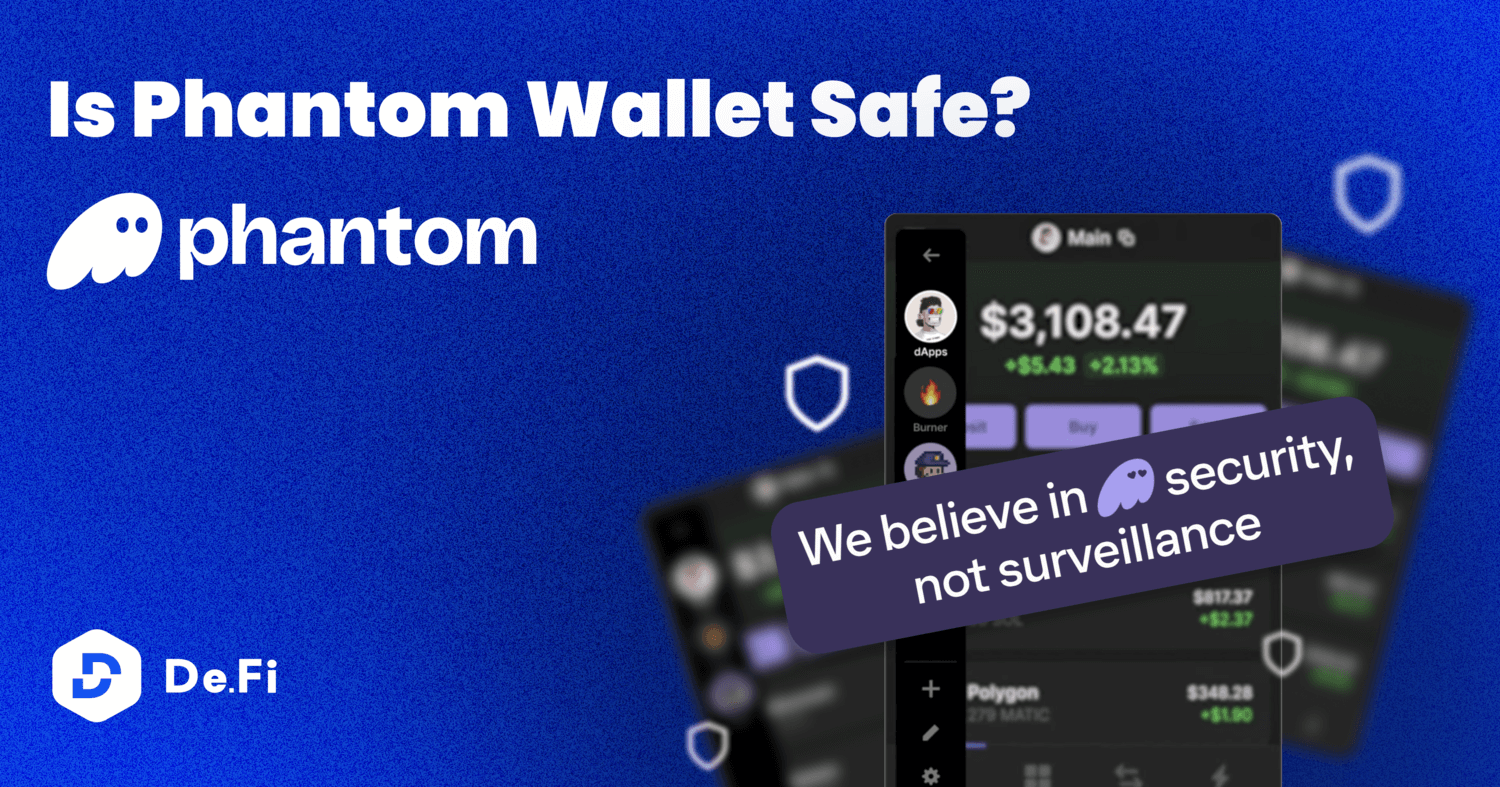
As a cryptocurrency investor, security remains a top concern. This is especially true when selecting a digital wallet to store, manage, and interact with your assets. Among the many options available, Phantom Wallet has emerged as a popular choice for those in the Solana ecosystem, sparking questions about its safety, legitimacy, and features.
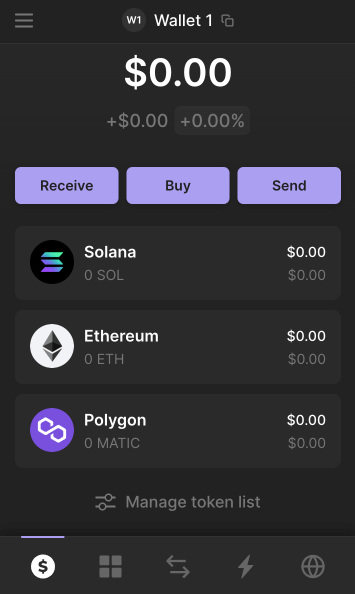
The default Phantom Wallet home screen
This article aims to provide a thorough overview of Phantom Wallet, exploring its built-in security features, functionality, and overall usability as your portal to the world of Solana.
When it comes to Solana wallets, Phantom Wallet has established itself as the most trusted choice within the ecosystem. It has over 3,000,000 users on Chrome, 1,000+ ratings on the App Store, and 1,000,000+ downloads via Google Play.
Phantom has gained popularity thanks to its non-custodial nature, robust security features, and history of satisfied users. Let’s review what makes Phantom one of the safest options you can choose:
Central to Phantom Wallet’s design is its non-custodial nature. This crucial feature ensures that users retain exclusive control over their private keys — the critical access point to their digital funds. Unlike centralized exchanges that hold your funds and may become points of failure in case of hacks or administrative issues, Phantom Wallet empowers users with full autonomy.
This decentralization minimizes the risk of unauthorized access and asset seizure, positioning the wallet as a secure choice. However, this autonomy also means users bear the primary responsibility for safeguarding their assets.

Users maintain their autonomy by storing a “seed phrase” that is the basis for the wallet’s private keys. Because Phantom does not control the storage of this phrase, it is critical that the user alone properly store their wallet’s unique information. There is a complete guide to Phantom seed phrases available via their support website. To learn more about general DeFi wallet security, we recommend our guide to DeFi wallets.
Phantom Wallet’s commitment to security is evident through its suite of protective features. It supports integration with hardware wallets, such as Ledger, providing an extra security layer by allowing users to store their private keys in a physically secure device, disconnected from the internet’s vulnerabilities.
The mobile application incorporates biometric authentication, enabling users to secure their wallet with fingerprints or facial recognition — a testament to Phantom’s dedication to combining security with convenience. Furthermore, Phantom emphasizes the importance of secure seed phrase management by offering encrypted backup solutions, ensuring that users can recover their wallets without compromising safety.
Despite its non-open-source status, which often raises questions regarding auditability and transparency, Phantom Wallet has built a solid reputation within the web3 community. This trust is fostered by the wallet’s proactive stance on security: regular updates, clear communication regarding potential vulnerabilities, and a comprehensive security guide tailored for users.
Security is essential.
— Phantom (@phantom) February 21, 2024
Without it, your precious SOL and other assets are at risk. And we can’t have that.
So, we built these 7 industry-leading security features to protect you👇 pic.twitter.com/aPxCUKak62
Phantom’s dedication to educating its user base about web3 security best practices underscores its commitment to not just offering a tool for blockchain interaction but also ensuring that its users are well-equipped to navigate the ecosystem safely.
The true test of any digital wallet’s security lies in its operational history and community trust. Phantom Wallet, having served millions of users without a significant security breach over its operational years, stands as a testament to its reliability and the effectiveness of its security measures. The development team’s transparency about security protocols and their continuous efforts to adapt and respond to new threats play a crucial role in maintaining this trust.
Overall, Phantom Wallet is a secure, user-centric solution for engaging with the Solana blockchain. Its non-custodial nature, robust security features, and commitment to user education form a solid foundation for safe digital asset management. However, it’s imperative to remember that the security of your assets also hinges on adhering to best practices and staying vigilant against evolving threats. Phantom Wallet provides the tools for security, but the responsibility ultimately lies with the user to navigate the web3 world safely.
Phantom Wallet has established itself as a leading Solana blockchain wallet, now extending its services to Ethereum and Polygon networks. This extension has enhanced its appeal, making it a versatile tool for managing digital assets and interacting with decentralized applications (dapps). Below is a comprehensive review of Phantom Wallet’s features:
Official Site: https://phantom.app/
Types of Tokens Supported: Phantom Wallet’s expansion to support Ethereum and Polygon, in addition to Solana, marks a significant milestone. This multi-chain functionality allows users to manage a diverse range of tokens, including but not limited to SOL, ETH, MATIC, and ERC-20, SPL, and ERC-721 tokens, facilitating a seamless experience across different blockchain ecosystems.
Swapping Features: Phantom integrates a built-in swap function, enabling users to exchange tokens directly within the wallet. This feature is supported by the Phantom Swapper, which leverages liquidity from various decentralized exchanges to offer competitive rates.
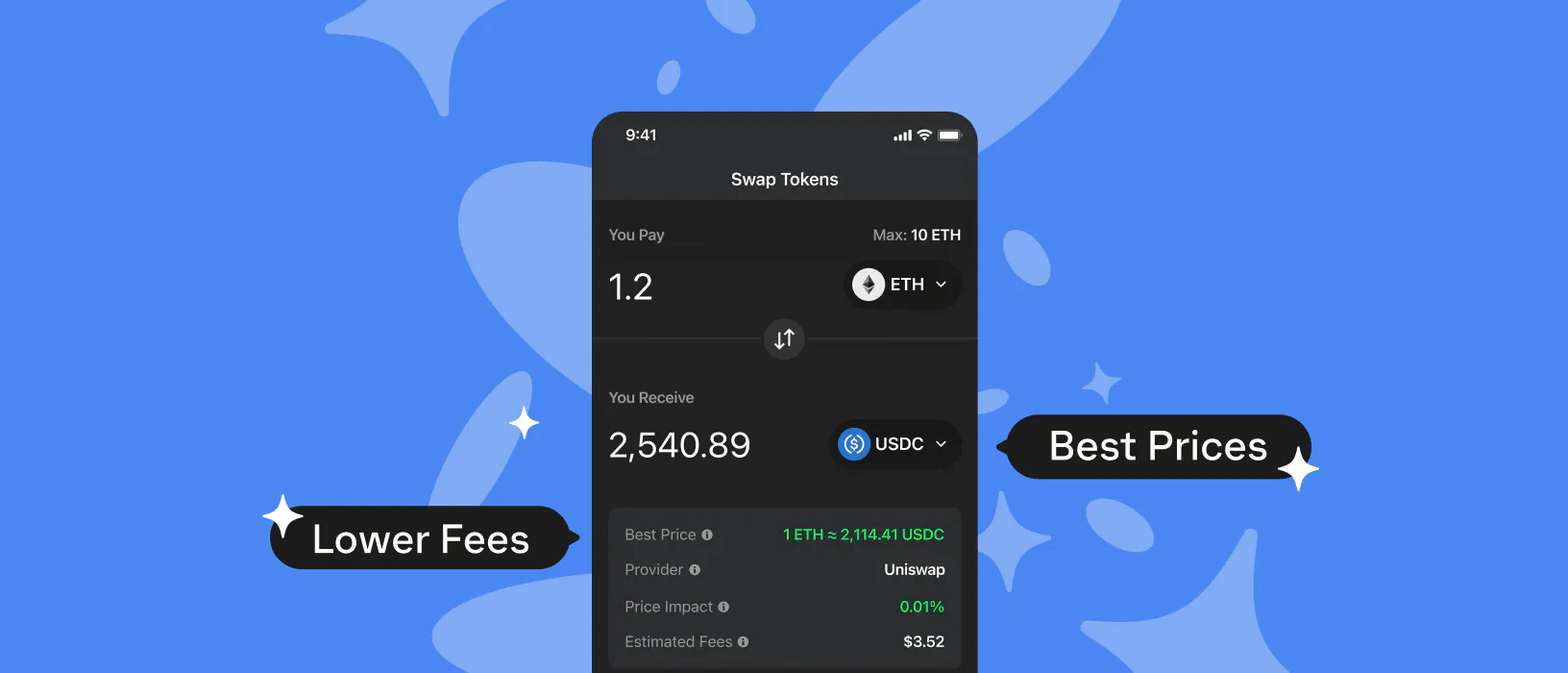
Hardware Wallet Support: For users prioritizing security, Phantom Wallet provides support for hardware wallets, such as Ledger. This integration allows for the secure storage of private keys offline while still enabling easy access to funds and transaction capabilities within the Phantom Wallet interface.
Fees: Phantom Wallet itself does not charge fees for general use but does apply fees on token swaps. These fees are variable and depend on the network conditions at the time of the transaction. They are transparently displayed to the user before confirming a swap.
Token Bridges: The wallet introduces token bridges, facilitating cross-chain transactions between Solana, Ethereum, and Polygon. This feature enhances the wallet’s versatility, enabling users to navigate the multi-chain landscape efficiently. The cross-chain swapper is a notable tool that underscores Phantom’s commitment to bridging the gap between different blockchains.
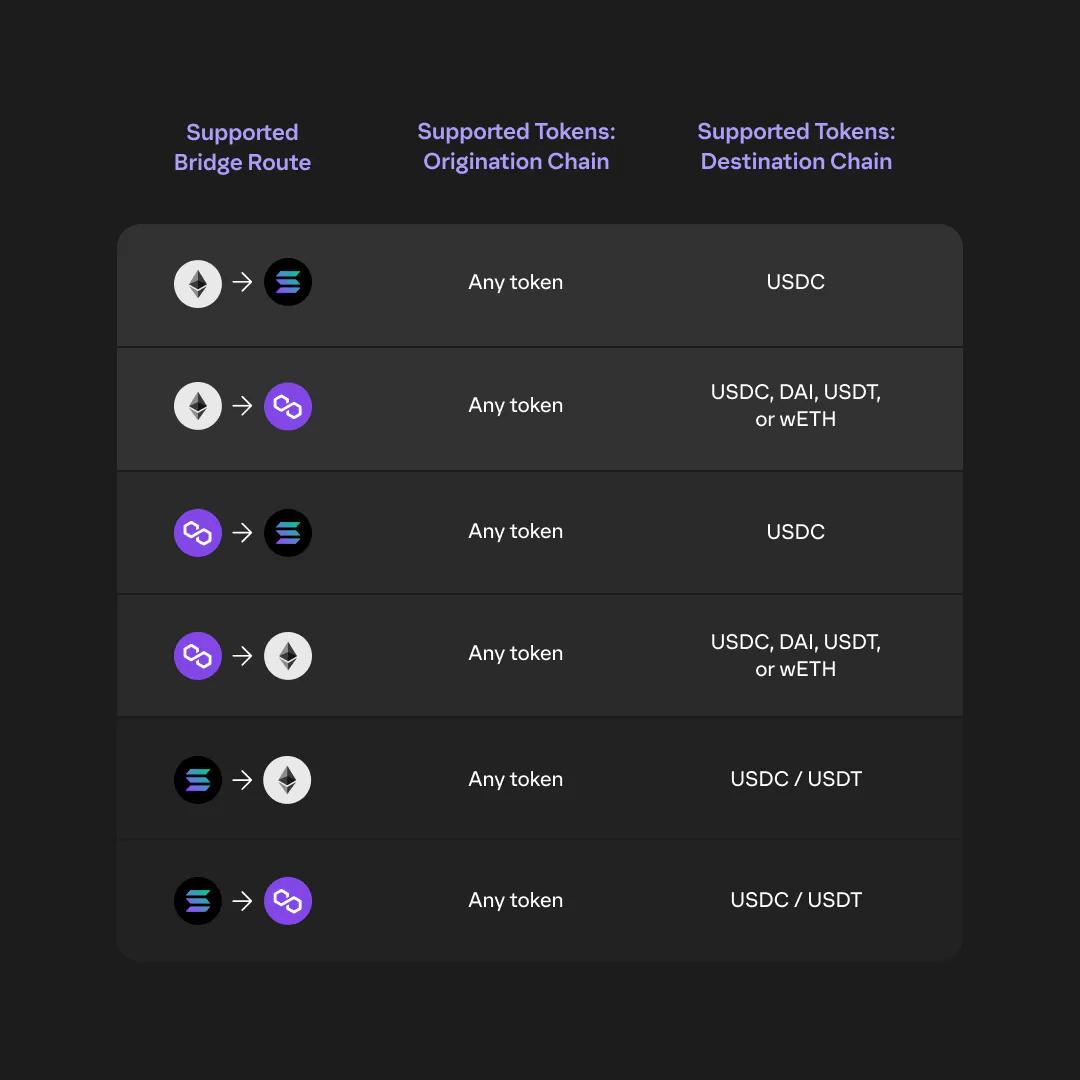
Phantom’s cross-chain swap options
Fiat Purchases In-App: Phantom Wallet simplifies the process of entering the cryptocurrency market with in-app fiat purchases. Users can buy Ethereum (ETH), Polygon (MATIC), and Solana (SOL) directly within the wallet using traditional payment methods.
Multi-Account Options: To cater to the needs of users managing multiple portfolios or preferring to segregate their transactions, Phantom Wallet offers multi-account options. This functionality allows for the creation and easy switching between different accounts within the same wallet, enhancing organizational flexibility.
NFT Storage: Reflecting the growing interest in non-fungible tokens, Phantom Wallet incorporates NFT storage capabilities. Users can securely store, view, and manage their NFT collections directly within the wallet, supporting a wide range of NFTs across the supported blockchains.
Support Team: Phantom’s commitment to user satisfaction and security is evident in its responsive support team. Users can access a wealth of resources, including articles, FAQs, and direct assistance through their support center. The team’s dedication to addressing user queries and concerns promptly plays a crucial role in the wallet’s reliability.
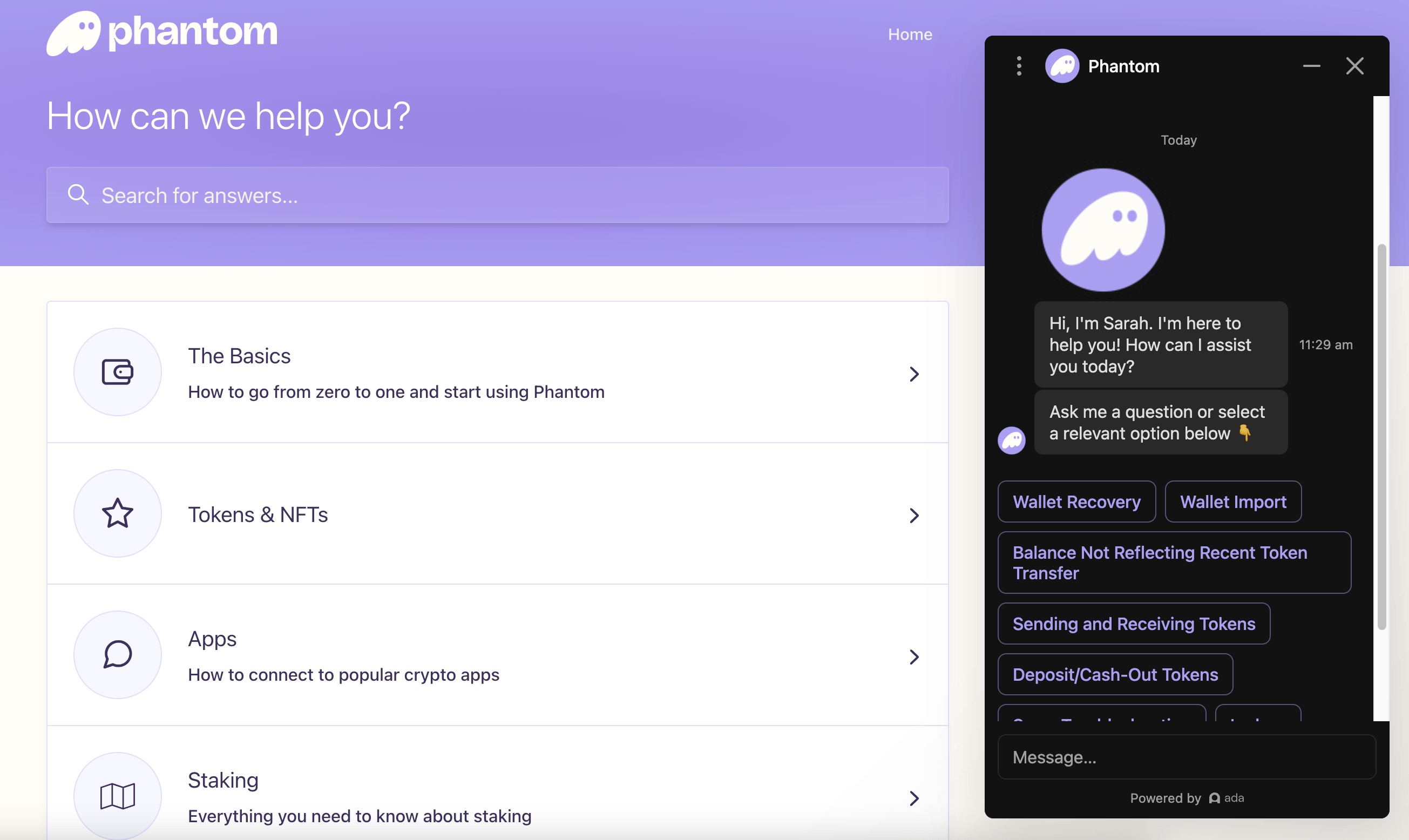
Phantom’s support is available to help with a wide variety of issues
In all, Phantom Wallet stands out as a comprehensive digital asset management tool, catering to a wide range of needs with its multi-chain support, security features, and user-centric functionalities.
Whether you’re a seasoned web3 enthusiast or new to the blockchain space, Phantom Wallet provides a secure, efficient, and accessible platform for managing digital assets, engaging with decentralized applications, and exploring the world of NFTs.
The Phantom Wallet mobile app is a companion to its browser counterpart, tailored for users who prefer managing their digital assets and navigating the web3 space on their mobile devices. This app is available for both Android and iOS platforms, ensuring a broad user base can access Phantom Wallet’s features seamlessly on the go.
Addressing the paramount concern of security, the Phantom mobile app incorporates rigorous safety measures to protect user assets and data. The app upholds the wallet’s reputation for phantom wallet security, employing encryption, biometric locks, and secure connection protocols that reassure users regarding the safety of Phantom’s mobile wallet.

The mobile version brings all the functionalities known from the Phantom browser extension to a compact, mobile interface. This includes support for Ethereum, Solana, and Polygon networks, providing a versatile platform for managing diverse digital assets. Users can effortlessly engage in token swaps, benefiting from the Phantom Swapper feature, which is designed with user convenience in mind, only incurring fees on swaps.
A standout feature of the Phantom mobile app is its built-in browser, designed to streamline interactions with web3 dapps directly from your smartphone. This eliminates the need to juggle between multiple apps or extensions, offering a unified platform for exploring decentralized applications, DeFi platforms, and NFT marketplaces.
Considering its comprehensive feature set, robust security measures, and the convenience of a built-in web3 browser, the Phantom mobile app is more than just a good wallet—it’s an essential tool for anyone looking to navigate the decentralized web with ease and assurance. The app’s user-centric design, coupled with Phantom’s commitment to phantom wallet safety, makes it a standout choice for mobile users invested in the web3 ecosystem.
Phantom Wallet, recognized for its robust security measures, offers users a safe environment to explore the web3 space. However, the security of your assets also hinges on adopting best practices for web3 wallet security. Here are essential guidelines to enhance your safety while using Phantom Wallet.
When interacting with the web3 ecosystem through Phantom Wallet, the authenticity and security of the websites you connect to cannot be overlooked. Malicious websites, designed to mimic legitimate platforms, are a common tool used by attackers to phish for sensitive information such as wallet details or seed phrases.
To combat this, always ensure that the website’s URL is correct and that it uses HTTPS, which indicates a secure connection. Employing browser security extensions that alert you to known phishing sites or suspicious web activity can provide an additional layer of protection. Be skeptical of unsolicited links received via email or social media, as these could lead to compromised sites.
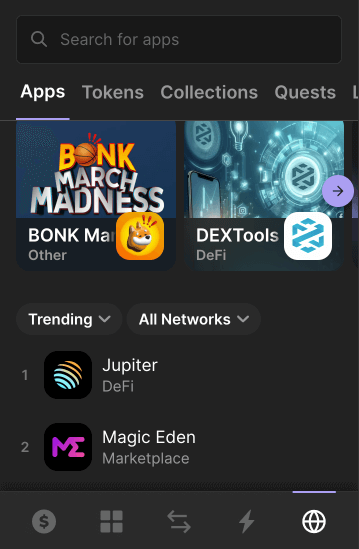
Using Phantom’s built-in app discovery tools allows you to ensure you are always visiting legitimate web3 domains
Establishing a routine of verifying the security and legitimacy of websites before connecting your Phantom Wallet can significantly reduce the risk of falling victim to online fraud and theft.
The seed phrase, a sequence of words generated by your Phantom Wallet upon setup, is the cornerstone of accessing your digital assets. Its significance cannot be overstated, as it is the ultimate recovery tool for your wallet. To ensure its safety, it’s imperative to avoid digital storage mediums which are susceptible to cyber-attacks.
Instead, opt for writing it down on a piece of paper. This physical copy should be kept in a secure location, such as a safe or a locked drawer, where only you or trusted individuals can access it. To further mitigate risk, consider using a metal seed storage device that is fireproof and waterproof.
Sharing your seed phrase, even with individuals claiming to be from support services, is a direct threat to your wallet’s security. Phishing attempts are common, and your vigilance is your first line of defense. Remember, the responsibility of safeguarding your seed phrase—and by extension, your assets—lies solely with you.
Before committing your assets to any smart contract or decentralized finance (DeFi) platform, it’s essential to perform a comprehensive audit. Tools like the De.Fi Scanner offer an invaluable resource in this regard, allowing anyone to scrutinize contracts for security flaws or malicious intent.
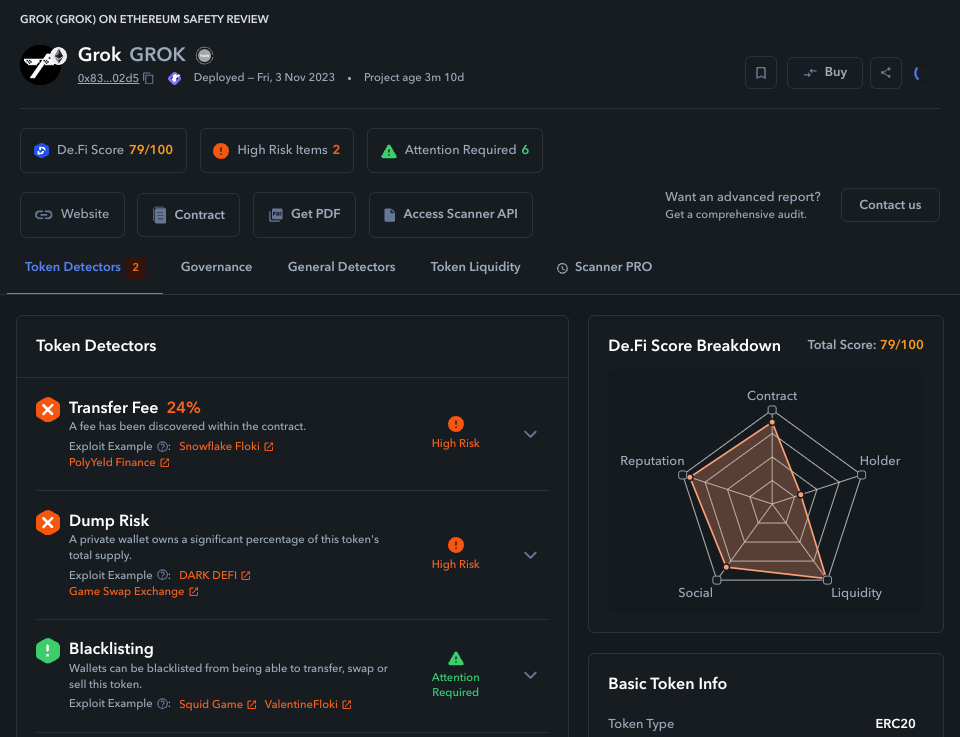
De.Fi Scanner results for GROK
Scanner audits reveal potential vulnerabilities but also provide insights into the contract’s operational mechanisms, ensuring they align with your expectations and investment principles. Educating yourself about the nuances of smart contracts and the common pitfalls within the DeFi space can significantly mitigate risks. Participating in community forums and leveraging the collective knowledge of more experienced users can also inform your decision-making process.
Remember, the allure of high returns should never overshadow the imperative of security. A cautious approach to contract interaction underscores a responsible investment strategy in the ever-evolving landscape of blockchain technology.
The integrity of the device used to access your Phantom Wallet is as crucial as the security of the wallet itself. Devices compromised with malware or spyware pose a significant risk, as they can be used to illicitly obtain your wallet’s credentials.
To safeguard against such threats, it’s essential to regularly update your operating system and all applications to their latest versions. These updates often include patches for security vulnerabilities that could be exploited by attackers. Additionally, employ reputable antivirus and anti-malware solutions to detect and eliminate potential threats.
Be wary of downloading and installing software from unverified sources, as these could harbor malicious software designed to compromise your wallet’s security. Practicing digital hygiene by securing your device with a strong password or biometric authentication can further enhance your security measures.
In web3 and DeFi, granting permissions to various decentralized applications (dapps) and services becomes a routine part of the experience. However, this access should be carefully managed to safeguard your assets.
Regularly reviewing the permissions you’ve granted and removing those that are outdated or from platforms you no longer trust is a critical security practice. This vigilance prevents unauthorized access and potential misuse of your wallet.
For EVM permissions, Phantom wallet users can lean on De.Fi Shield to keep track of and revoke suspicious contract allowances:
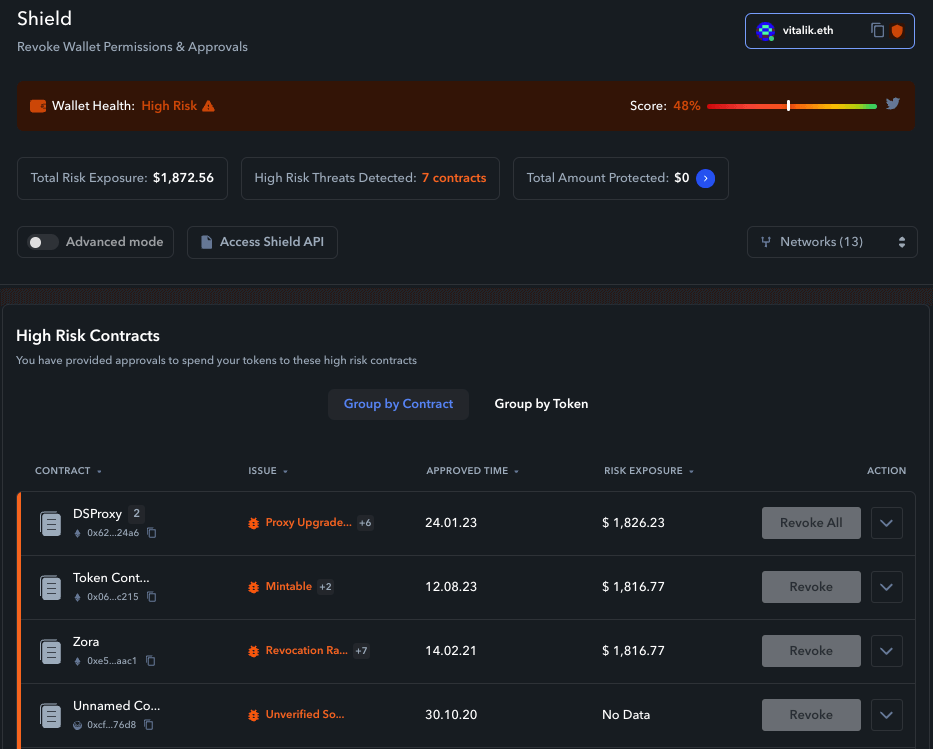
For revoking Solana permissions, Phantom recommends using the Famous Foxes revoke tool.
It’s also advisable to be selective about the permissions you grant in the first place, limiting access to only what’s necessary for the dapp to function. This proactive approach to permission management is a cornerstone of maintaining a secure digital asset portfolio.
Hardware wallets, revered for their robust security features, store your private keys in a physical device, isolated from online threats. This separation ensures that even in the event of a compromised computer or smartphone, your assets remain protected.
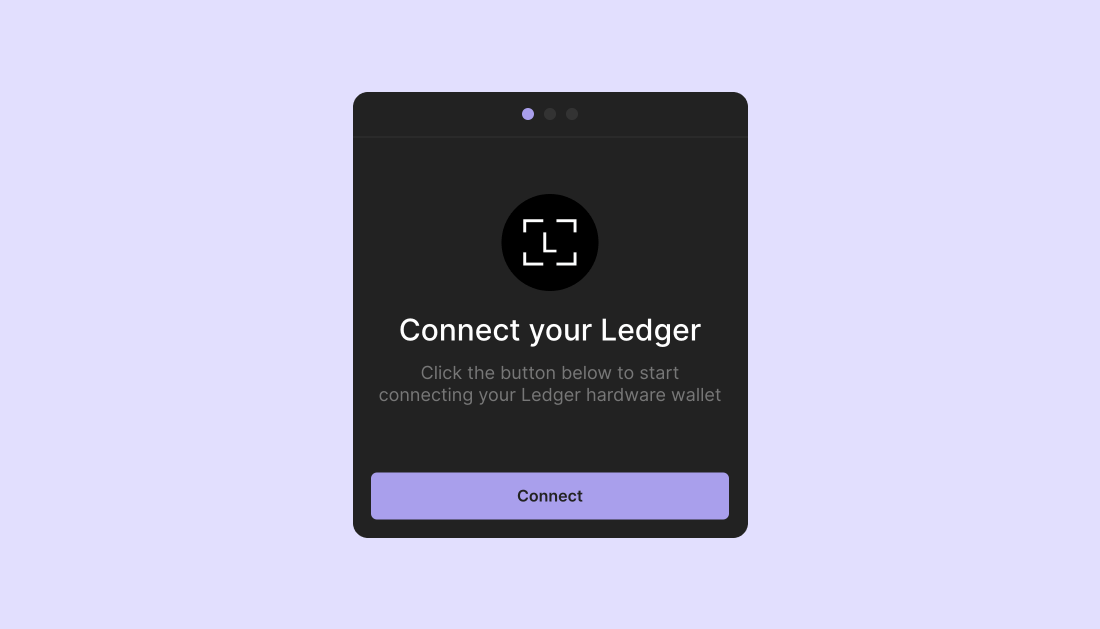
Phantom’s compatibility with Ledger wallets streamlines this security enhancement, allowing users to interact with dapps and execute transactions while the critical private keys stay securely offline. The process requires the hardware wallet to be connected and transactions to be manually verified, adding an extra layer of user consent to any operation.
This integration marries the convenience and flexibility of Phantom Wallet with the unparalleled security of hardware wallet storage, providing peace of mind to users navigating the decentralized web.
Be wary of unsolicited messages or emails asking for your seed phrase or wallet details. Phishing attempts often masquerade as official communication from Phantom or other trusted entities. Phantom will never ask for your seed phrase directly. Educate yourself on common phishing tactics and report suspicious activity.
Stay informed about previous security incidents involving web3 wallets and platforms. Utilize resources like the De.Fi REKT Database to research the history of hacks and scams. Knowledge of past vulnerabilities and attack vectors can guide you in choosing secure platforms and adopting best practices to safeguard your assets.
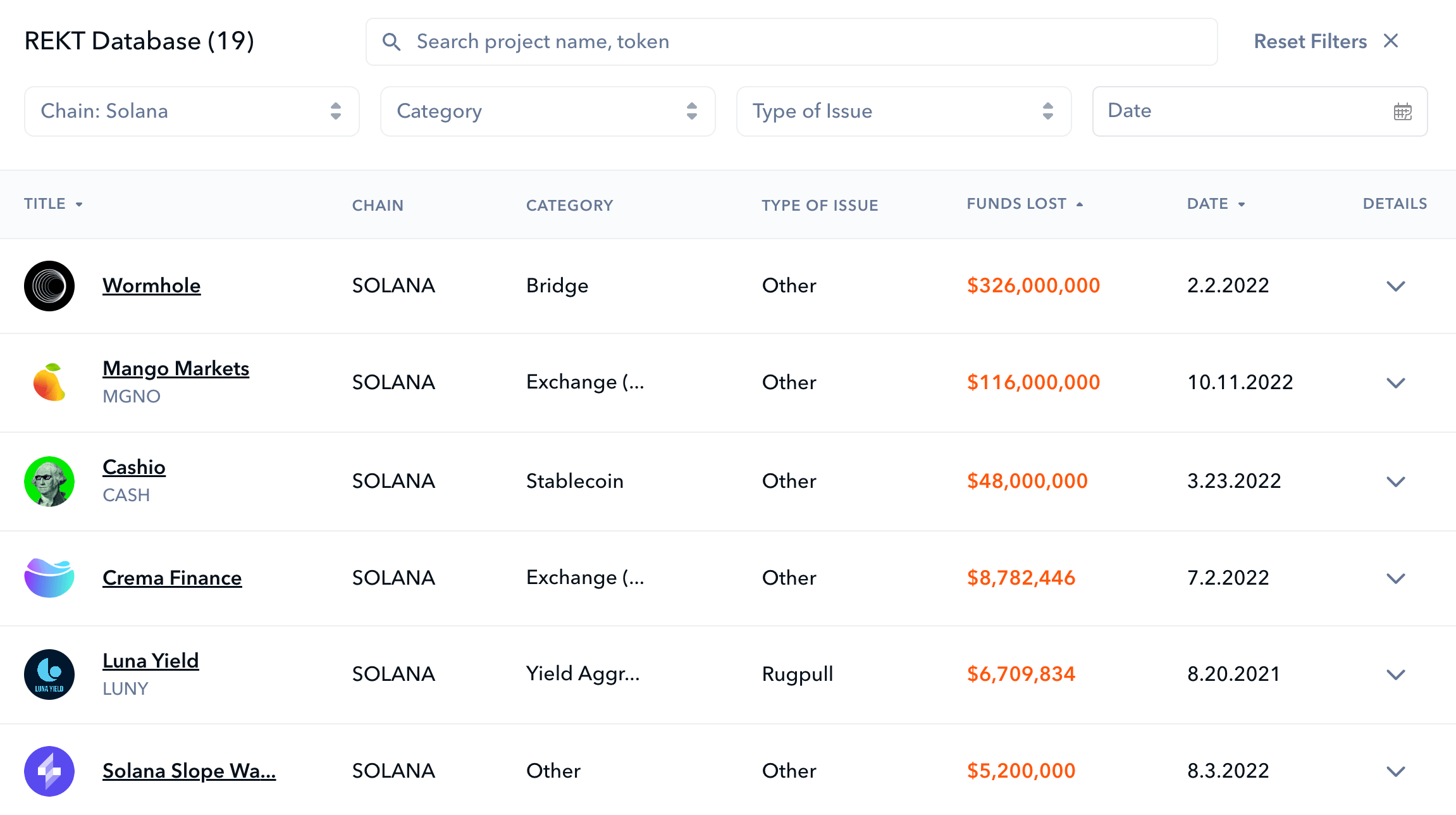
Research the history of Solana exploits with De.Fi’s REKT Database
By adhering to these security best practices, you can significantly enhance the safety of your Phantom Wallet. Remember, security in the web3 space is a continuous process that requires diligence, education, and the adoption of effective tools and strategies to protect your digital assets.
When considering the storage and management of digital assets, the choice between using a decentralized wallet like Phantom Wallet and a centralized crypto exchange is pivotal. Understanding the fundamental differences between these platforms is crucial for every crypto user.
Phantom Wallet, as a decentralized, non-custodial wallet, operates primarily as a tool for users to interact directly with the web3 ecosystem, including DeFi, NFTs, and blockchain networks like Solana, Ethereum, and Polygon. Being non-custodial, it ensures that users retain full control over their private keys and, by extension, their funds. This setup offers a high degree of security and autonomy, mitigating risks associated with centralized control.
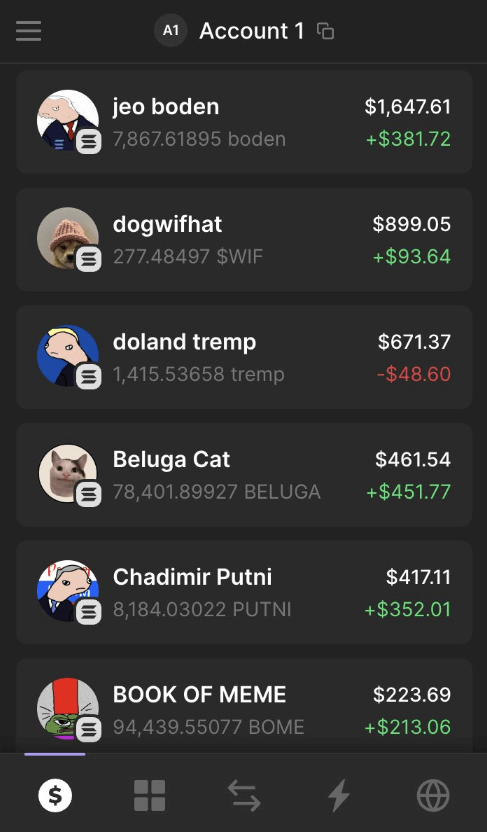
Want the first shot at memecoins before they’re listed on exchanges? You’ll have to snag a Phantom Wallet
However, this autonomy also means that users bear the full responsibility for their wallet’s security, including the safekeeping of their seed phrase. Losing access to your seed phrase in a non-custodial wallet like Phantom implies that recovery of the wallet and its funds is impossible without it.
Crypto Exchanges, on the other hand, are centralized platforms where users can buy, sell, trade, and sometimes stake their cryptocurrencies. Exchanges offer convenience, ease of use, liquidity, and often a wide variety of tokens. They manage users’ private keys, which simplifies the recovery process if access details are forgotten. However, this custodial approach introduces risks related to security breaches, regulatory actions, or operational failures, which could potentially compromise users’ funds.
Phantom Wallet offers a secure, autonomous way to interact with the decentralized web, appealing to users who prioritize control and early access to innovations within the crypto space.
Conversely, crypto exchanges provide a more user-friendly, liquid environment for trading and holding cryptocurrencies, suited to those who may prioritize convenience and ease of access over full control.
For augmenting your web3 security and safeguarding your digital assets while interacting with Phantom Wallet, De.Fi delivers a variety of indispensable tools and resources. The De.Fi DeFi dashboard presents comprehensive solutions that empower users to securely traverse the decentralized finance terrain, including the De.Fi Scanner, an automated smart contract auditing tool accessible free of charge, and the De.Fi Shield, your personal Web3 Antivirus.
By harnessing our tools and keeping up-to-date through our YouTube channel and website materials, investors can make knowledge-driven decisions and circumvent potential hazards. De.Fi endows users with the essential knowledge and insights required to protect their assets, comprehend smart contracts, and stay abreast of the most recent security protocols.
October 2025 saw a total of $38.63 million lost across nine distinct security incidents in both centralized and decentralized platforms.
The third quarter of 2025 marked yet another turbulent period for the DeFi and wider crypto ecosystem, with $434,124,000 lost to exploits, scams, and security failures across both centralized and decentralized platforms.
June 2025 witnessed another alarming month for Web3 security, with a total of $114,768,000 lost during 11 separate attacks
May 2025 saw both DeFi and CeFi security once again under attack, with $275,953,000 lost across just 8 recorded incidents
April 2025 witnessed a large escalation in exploit volume and value, with a massive $5,919,684,000 being stolen in 10 confirmed events.
Q1 2025 marked one of the worst quarters in blockchain exploit history, with total recorded losses topping $2,052,584,700 across 37 incidents
© De.Fi. All rights reserved.